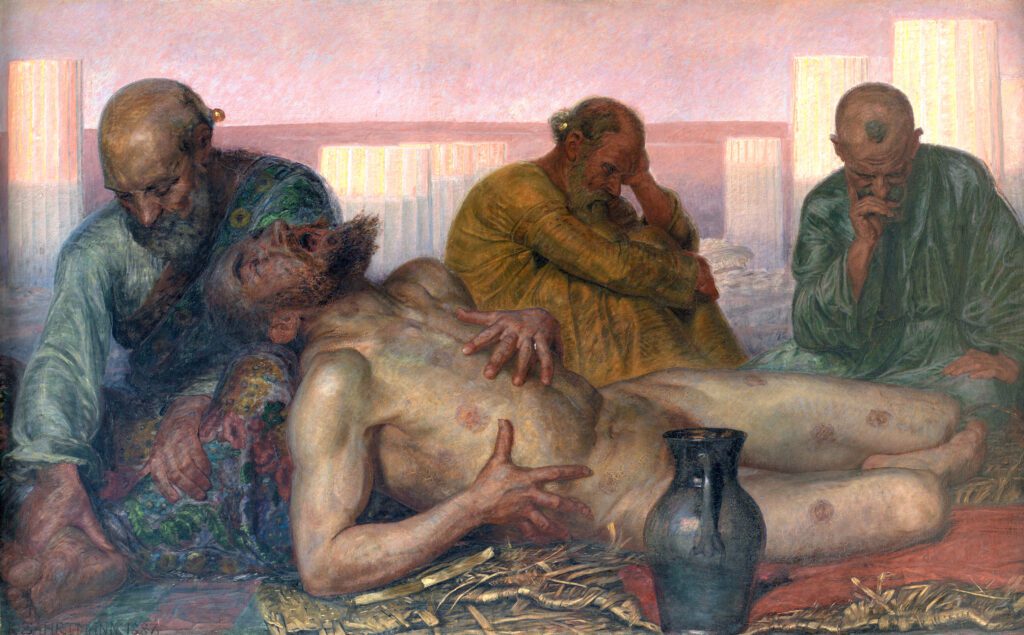
It might help to briefly summarize the Book of Job, since the book is so condensed in the readings we hear this week. After Job is afflicted, losing everything and everyone he loves most, losing bodily health and physical comfort, he is visited by three of his friends. They come to comfort him, but after sitting with him in silence for days, they chastise him. They see only guilt when God allows a man to be afflicted. The reading today comes after multiple rounds of discourse, in which Job’s friends repeat the idea that Job must have sinned, otherwise he wouldn’t be so afflicted.
Job knows that he is blameless. He intelligently summarizes his friends’ arguments and points out that he is known for being upright. Job’s repeated refrain is this: “I know that God is good and just, and that He has the right to do whatever He wants. But I have not sinned, and I don’t understand why He is letting me be afflicted. Let me state my case to Him, and let Him listen to me.”
It is in this context that Job says the words in our reading: “But as for me, I know that my Vindicator lives, and that he will at last stand forth upon the dust” (Job 19:25). Job does not say this after hearing good news. He says this at the lowest point of his life, without family and berated by friends. There is no reason for him to believe that things will get better. Yet, he still trusts God. He does not necessarily believe that his fortunes will be restored. But he trusts that God has a reason for His actions. He trusts that if God would hear him out and explain Himself to him, the answer would be sufficient. Even in excruciating pain, Job knows that God is good.
The seventy-two disciples in today’s Gospel have to practice a different sort of trust in God. Jesus sends them out “like lambs among wolves” — not good prospects for safety (Luke 10:3). Yet, He tells them to cure the sick, and also to raise the dead, cleanse lepers, and drive out demons (see Matt 10:8). How are they supposed to do this as lambs among wolves? Jesus does not say. But He expects them to work these miracles. As Job had to trust God in the midst of the most difficult experiences of his life, the seventy-two had to trust that Jesus could work miracles through them. And He did, as they report when they return.
These faithful disciples of Our Lord cause us to look within ourselves: Do you really trust God? Do you believe that He knows what He is doing and that it is good, even if His actions seem unreasonable? Do you believe that He can work miracles in you, even in the midst of danger and uncertainty? Do you trust Him, even when there appears to be no reason why you should?
Daily Reading
Saturday of the Twenty-sixth Week in Ordinary Time
Readings for the Optional Memorial of Saint Faustina Kowalska, virgin Reading 1 JB 42:1-3, 5-6, 12-17 Job answered the LORD and said: I know that you can do all things,…
Saint of the Day
Saint Faustina Kowalska
Saint Faustina Kowalska, celebrated for her profound messages of God’s mercy, experienced mystical visions and revelations, ultimately canonized by Pope John Paul II in 1993.
The post Saint Faustina Kowalska appeared first on uCatholic.



